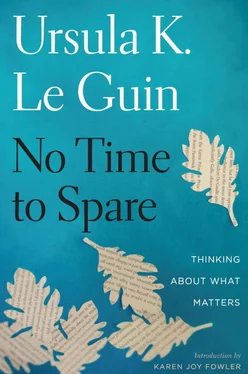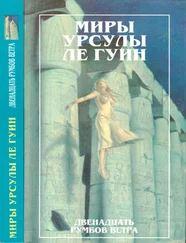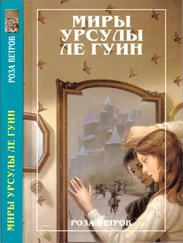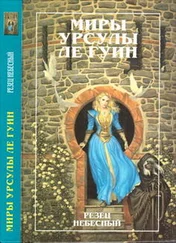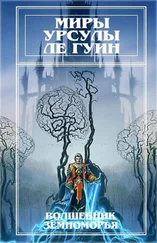Some are problematic: the teacher has told the kids to “write an author,” making the assignment a requirement without regard for the students’ feelings or capabilities—or mine. One desperate ten-year-old forced to write the author told me: “I have read the cover. it is prety good.” What am I to say to him? His teacher put both him and me on the spot and left us there. Not fair.
Frequently teachers tell the students to tell the author what their favorite part of the book is and to ask a question. The favorite part is fine, the kid can always fake it; but asking a question is pointless unless the student really has one. It’s also inconsiderate, raising the impossible expectation that a working author can write back with answers to twenty-five or thirty different questions, even if most of them are variations on two or three standard themes.
When teachers let the kids write whatever they want, if they want to write anything, it works. The questions are real, though some of them would stump the Sphinx. “Why do the catwings have wings?” “Why did you ever write books?” “I want to know how you make some of the words on the cover slanted.” “My cat Boo is nine. I am ten. How old is your cat? Is it fair to catch mice?” And there are interesting criticisms. Kids are forthright, both positively and negatively; their comments tell me what interests and what disturbs them. “Did James ever get better from the Owl?” “I hate Mrs Jane Tabby she made her kitens go away from hom.”
The class mailings I enjoy most are those where the teacher has encouraged the kids to draw their own pictures of scenes in the book, or to write sequels and continuations of the adventures of the Catwings.
“Catwings 5” and “Catwings 6” on ursulakleguin.com, posted quite a while back, are examples of one approach to this: the teacher has guided/collaborated with the students in making up the story, and has chosen the pictures to illustrate it. This is an admirable exercise in teamwork on an artistic project, and the result is charming. Adult control, however, inevitably tames the wild unpredictability of stories and pictures that come straight from each child’s imagination. Such illustrations, stories, and booklets give me almost unalloyed delight.
The occasional alloy is in the now inevitable stories that imitate electronic games, a more alarming instance of adult control. In these, the Catwings go through “a portal” into the middle of an incoherent adventure involving battles and the slaughter of enemies, monsters, etc., by the million. Evidently this is the only story the child knows. It’s scary to see a mind trapped in an endless repetition of violent acts without meaning or resolution, only escalation to keep the stimulus going. So far this kind of thing has come only from boys, which may be, in its way, a hopeful sign. I remember hearing my next older brother in 1937 making up and acting out his own adventure stories in his room—shouts of defiance, muffled thuds, cries of “Get him! Get him!” and machine-gun fire. My brother came through all this mayhem as a quite unviolent adult. But the games of instantly rewarded destruction, in which the characters and action are ready-made “action figures” and the only goal is “winning,” are designed to be addictive, and therefore may be hard to outgrow or replace. Compelled into an endless, meaningless feedback loop, the imagination is starved and sterilized.
As for the joy I get from the stories and booklets, a large part of it is in seeing that so many kids are perfectly willing to write a book (the book may be about fifty words long). They are confident about doing it and about illustrating it. They take obvious pleasure in giving it chapters, and a table of contents, and a cover, and a dedication. And at the end, they all write “The End” with a proud flourish. They should be proud. Their teacher is proud of them. I am proud of them. I hope their family is proud of them. To have written a book is a very cool thing, when you are six or eight or ten years old. It leads to other cool things, such as fearless reading. Why would anybody who’s written a book be afraid of reading one?
As an experienced connoisseur, I can say the best letters and books by kids are entirely handmade. A computer may make writing easier, but that’s not always an advantage: ease induces haste and glibness. From the visual point of view, the printout, with all idiosyncratic characters blanded into a standard font, is drably neat, while the artisanal script is full of vitality. Computer spell-checking takes all the flavor out of the nonprescriptive, creative spelling that can give great delight to a reader. In a printout, nobody tells me what their favrit pert of the book is, or their favroit prt, or faevit palrt, or favf pont. In a printout, nobody asks me Wi did you disid to writ cat wigs? And there are no splendid final salutations, such as “Sensrle,” which had me stumped, until “San serly” and “Sihnserly” gave me the clue. Or “Yours trully,” also spelled “chrule.” Or, frequently, echoing young Jane Austen, “Your freind.” Or the occasional totally mysterious farewells—“mth frum Derik,” “Fsrwey, Anna.”
Frswey, brave teachers, brave children! (And thank you for the quotations!)
mth frum Ursula.
April 2012
THE INABILITY TO understand proverbs is a symptom of something—is it schizophrenia? Or paranoia? Anyhow, something very bad. When I heard that, many years ago, it worried me. Everything I ever heard about a symptom worries me. Do I have it? Yes! Yes, I do! Oh God!
And I had proof of my paranoia (or schizophrenia). There was a very common proverb that I knew I’d never understood.
YOU CAN’T HAVE YOUR CAKE AND EAT IT TOO.
My personal logic said, How can you eat a cake you don’t have?
And since I couldn’t argue with that, I silently stuck to it, which left me in a dilemma: either the saying didn’t make sense (so why did intelligent people say it?) or I was schizophrenic (or paranoid).
Years passed, during which now and then I puzzled over my problem with the proverb. And slowly, slowly it dawned on me that the word have has several meanings or shades of meaning, the principal one being “own” or “possess,” but one of the less common connotations is “hold on to,” “keep.”
YOU CAN’T KEEP YOUR CAKE AND EAT IT TOO.
Oh!
I get it!
It’s a good proverb!
And I am not a paranoid schizophrenic!
But it seemed odd that I hadn’t arrived sooner at the “keep” meaning of have. I puzzled over that for a while too, and finally came up with this:
For one thing, it seems to me that the verbs are in the wrong order. You have to have your cake before you eat it, after all. I might have understood the saying if it was “You can’t eat your cake and have it too.”
And then, another kind of confusion, having to do with have. In the West Coast dialect of English I grew up with, “I had cake at the party” is how we said, “I ate cake at the party.” So “You can’t have your cake and eat it too” was trying to tell me that I couldn’t eat my cake and eat it too…
And hearing it that way as a kid, I thought, Hunh? but didn’t say anything, because there is no way, no possible way, a kid can ask about everything grownups say that the kid thinks Hunh? about. So I just tried to figure it out. And once I got stuck with the illogic of the cake you have being the cake you can’t eat, the possibility never occurred to me that it was all about hoarding vs. gobbling, or the necessity of choice when there is no middle way.
I expect you’ve had quite enough cake by now. I’m sorry.
But see, this is the kind of thing I think about a lot.
Читать дальше
